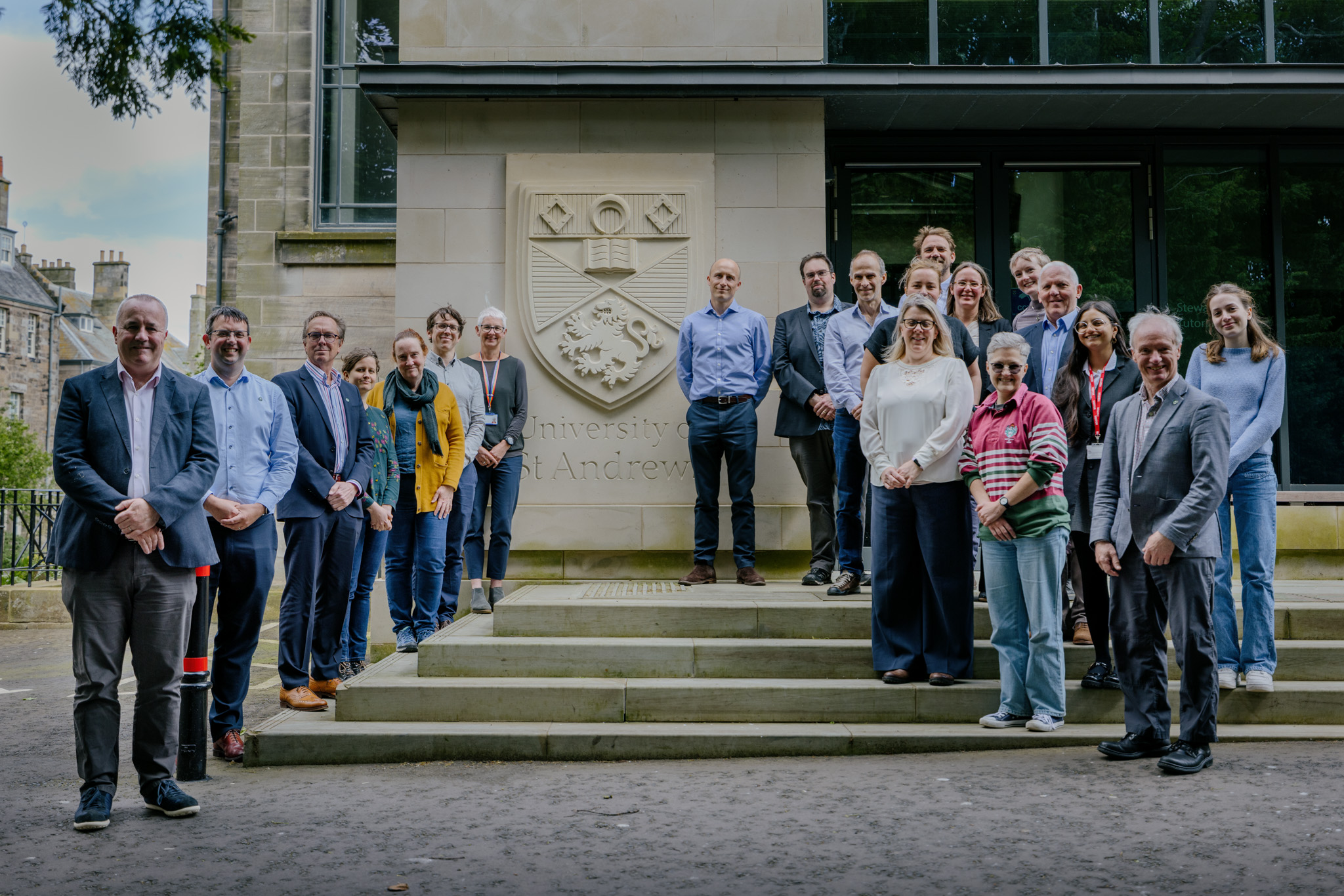
The University of St Andrews joins the National Centre for Atmospheric Science to enhance climate change research and weather science with the use of artificial intelligence (AI) and advanced computing.
The new partnership, announced today, will bring mathematical modelling experts, machine learning researchers, and atmospheric scientists together to tackle urgent climate change and weather science challenges.
Machine learning techniques and AI offer unprecedented potential to predict climate change and extreme weather events – opening up new ways to adapt to and mitigate their effects.
Professor Stephen Mobbs, Executive Director at the National Centre for Atmospheric Science (NCAS) said: "NCAS has 250 members of staff, embedded at 12 universities and research institutes across the UK, who work in collaboration to address some of the most crucial questions in climate change and weather science – and this now includes the University of St Andrews. We will be harnessing expertise at the University of St Andrews to reflect the importance of computational and mathematical modelling technologies for understanding and solving environmental challenges. This is an exciting and evolving area of research for NCAS, and we are delighted to establish a brand new research relationship with colleagues in Scotland."
NCAS and the University of St Andrews will now begin working on this joint venture to develop faster, more accurate, long-term predictions of variability in the global climate – harnessing advanced computing technology to take a closer look at El Niño, regional climate change, and global temperature rise. The same digital tools will be used to generate forecasts for weather that can put lives and livelihoods at risk, such as storms and heatwaves.
The Scotland-based research team will align their work closely with the Natural Environment Research Council's Digital Strategy, and with the new "Digital Atmosphere" science focus at NCAS.
Dr Ioana Colfescu, a Principal Research Fellow at the University of St Andrews and NCAS's lead on "Digital Atmosphere" will focus on using traditional data analysis methods alongside new AI approaches to drive research forward: "Our AI fundamental climate research activities will complement and enhance our traditional model-based approaches to forecasting extreme weather and global climate patterns, and support us to move closer to a seamless prediction framework across weather and climate scales.
"In recent years it has become clear that we are reaching the limits of what can be achieved using Earth system models. These limitations arise both from fundamental limits to traditional computer technologies as well as issues linked to fundamental aspects of the algorithms of fluid dynamics.
"Machine learning offers the possibility of addressing these issues and to substantially improve weather prediction and the understanding of long-term scales of climate variability. But, there are multiple uncertainties associated with this new approach too.
"At St Andrews we plan to improve our understanding of traditional model approaches along with new machine learning methods and continue to address fundamental questions in atmospheric science. The work will include a hierarchy of scales – from fundamental aspects of fluid dynamics in idealised models to Earth System model representations. We are looking forward to using both new computer architectures and new scientific methodologies."
The Vice-Principal for Research, Collections and Innovation at the University of St Andrews, Professor Tom Brown, said: "It is great to see the launch of this important partnership, through which St Andrews' world-leading research in climate science will play a key role in addressing some of the world's most urgent environmental challenges."
Commenting on the collaboration, Dr Michael Byrne, who leads the Climate Dynamics Lab at the University of St Andrews, said: "We are delighted to join NCAS in this long-term collaboration, which builds on strong and growing expertise in the atmospheric and climate sciences across the University. The focus of the partnership will be to advance fundamental understanding of the climate system and extreme weather events using theory and cutting-edge computational techniques, research that will help societies to prepare for and adapt to a warmer future. We are excited to get started."
Professor David Dritschel, who leads the Vortex Dynamics Research Group within the School of Mathematics and Statistics at the University of St Andrews, added: "This new partnership represents a timely opportunity to advance fundamental research underpinning atmospheric dynamics, both in the UK and internationally. There is a pressing need to better understand fundamental processes, such as turbulent mixing in clouds, which are poorly represented or absent in current weather and climate models. We will contribute our established expertise in this arena, and in particular further develop an arsenal of state-of-the-art, highly-efficient computational approaches to make much better uses of computational resources and new computational architectures."






